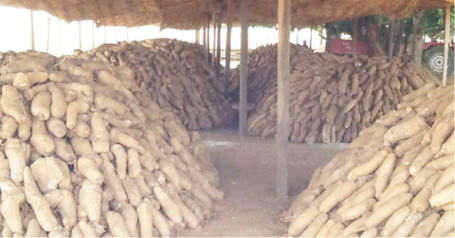Agro Solutions: Scientists Make Groundbreaking Discovery With Technology
Scientists have developed a more planet-friendly way to produce fertilizer, which is an essential component of global food systems.
Fertilizer is one of the most pollution-heavy aspects of farming because the production of its key ingredient, ammonia, requires high heat and intense pressure. Currently, synthetic ammonia production accounts for 2 percent of planet-warming pollution each year.
Now, a team of Chinese and Australian scientists announced they have discovered a new way to produce ammonia for fertilizer that lessens its environmental impact.
“The discovery involved air-zapping lasers that made fertilizer almost 40 times more efficiently than conventional methods,” Anthropocene reported.
In simple terms, the researchers used a pulsing laser to zap the air and make plasma (which Anthropocene describes as “highly-activated air”). Then, they were able to turn nitrogen into nitrate. They used water to help the compound ditch its oxygen atom and substitute it for hydrogen, resulting in ammonia.
This new innovation is just one piece of the puzzle when it comes to the environmental impacts of fertilizers.
For one, runoff from conventional nitrogen-based fertilizers can harm our waters and soil.
When fertilizer enters the water supply, it can also cause toxic algal blooms, which are deadly to fish and other aquatic wildlife. This was the suspected killer of dozens of fish in one Jacksonville, Florida, pond in 2023.
That’s why researchers at the University of Texas at Austin created a copper-based hydrogel that captures excess nitrates from fertilizer and turns them into reusable ammonia before they can contaminate the environment.
Though fertilizer remains imperfect regarding its environmental impacts, the new production method appears to be a step in the right direction.
“With increasing awareness of climate change, there is a growing demand for low carbon-emitting alternatives that do not heavily rely on fossil fuels,” the researchers state in their paper.
They added that the technology does not require the “vast infrastructure” needed for conventional fertilizer, meaning that production could be done on-site at farms.
“If we can make it locally to use locally, and make it as we need it, then there’s a huge benefit to society as well as the health of the planet,” the researchers said in a press release about some of their previous research on the topic.
Dailytrust /Shakirat Sadiq


Comments are closed.